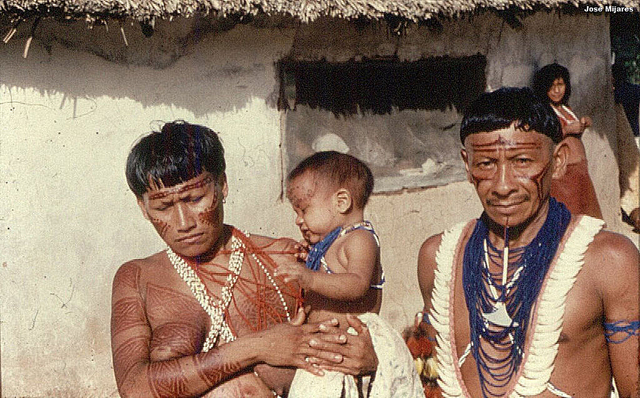The three Piaroa young men who were arrested by the Venezuelan police on January 23 are still languishing in jail in Amazonas state and the courts are not allowing them to be released. On March 14, El Pitazo, a Venezuelan news website, released a story with updated information about the condition of the three men plus the five other indigenous detainees. Their situation has not improved.

According to an earlier news report, eight indigenous men and two minors were passing by some street protests in Puerto Ayacucho, the capital of the state, on January 23 when they were arrested by the Bolivarian National Guard for such alleged crimes as terrorism, instigation of public disorder, obstruction of public roads, public incitement, resistance to authority, and association to commit a crime. The two minors were subsequently released.
The street protests had formed that day in support of a call by Juan Guaidó to declare the re-election of Nicholas Maduro as illegal. The news at that time indicated that the indigenous people would be held, reportedly in deplorable conditions, for 45 days until a public prosecutor’s office could decide if there was enough evidence to warrant a trial. That 45-day period should have ended on March 9. In his story on March 14, reporter Mickey Véliz writes that to date the relatives of the detainees have not been informed when or if a court hearing would be held regarding the detainees.
Carlos José Lima, the public defender assigned to the case, questions the fact that the police records about the arrests do not mention that the indigenous people did not know one another and that they were detained in different areas of Puerto Ayacucho. Thus, they could not have committed the crime of associating to commit crimes. That charge is arbitrary.
Another defense lawyer, Pablo Tapa from the Amazonian Indigenous Movement of Human Rights, said that the relatives of the arrested people have had access to their family members only a few times and very briefly. The Indigenous Human Rights Movement has denounced the deplorable conditions under which they are being held and the irregularities in the legal process for the indigenous inmates.
The reporter quotes Carolina Rodríguez Bossio, the mother of one of the arrested individuals who is not identified. She says that her son and the others are being detained in terrible conditions and the family members are being restricted to brief, momentary visits, if any. Her son and most of the others were only looking for a way to get out of the city that day in January. In the words of the Google translation, she says “it is not fair that he is imprisoned for something he did not do.”